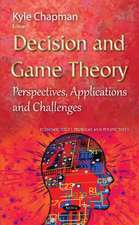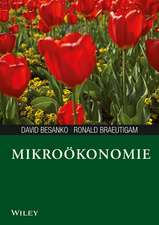Elinor Ostrom and the Bloomington School of Political Economy: Elinor Ostrom and the Bloomington School of Political Economy
en Limba Engleză Hardback – 3 sep 2015
| Toate formatele și edițiile | Preț | Express |
|---|---|---|
| Hardback (2) | 944.14 lei 6-8 săpt. | |
| Rowman & Littlefield – 3 sep 2015 | 944.14 lei 6-8 săpt. | |
| Rowman & Littlefield – 24 mar 2017 | 1132.68 lei 6-8 săpt. |
Preț: 944.14 lei
Preț vechi: 1293.34 lei
-27% Nou
Puncte Express: 1416
Preț estimativ în valută:
180.66€ • 189.01$ • 150.08£
180.66€ • 189.01$ • 150.08£
Carte tipărită la comandă
Livrare economică 03-17 aprilie
Preluare comenzi: 021 569.72.76
Specificații
ISBN-13: 9780739191088
ISBN-10: 073919108X
Pagini: 444
Ilustrații: 12 charts, 27 tables
Dimensiuni: 150 x 231 x 38 mm
Greutate: 0.79 kg
Editura: Rowman & Littlefield
Seria Elinor Ostrom and the Bloomington School of Political Economy
ISBN-10: 073919108X
Pagini: 444
Ilustrații: 12 charts, 27 tables
Dimensiuni: 150 x 231 x 38 mm
Greutate: 0.79 kg
Editura: Rowman & Littlefield
Seria Elinor Ostrom and the Bloomington School of Political Economy
Notă biografică
Descriere
Elinor Ostrom and the Bloomington School of Political Economy is a comprehensive collection, in four volumes, of the most important contributions by Ostrom and her colleagues on central issues. This second volume presents Ostrom's best-known legacy, her work on resource governance and the maintenance of resources through collective action.
Cuprins
Chapter 1 Selections from Y673 Syllabus: Institutional Analysis and Development - Micro
Chapter 2 An Institutional Framework for Policy Analysis and Design
Chapter 3 Appendix A: The Institutional Analysis and Development Framework
Chapter 4 The IAD Framework in Action: Understanding the Source of the Design Principles in Elinor Ostrom's Governing the Commons
Chapter 5 Public Economy Organization and Service Delivery
Chapter 6 Metropolitan Governance and Institutional Collective Action
Chapter 7 Structuring Institutional Analysis for Urban Ecosystems: A Key to Sustainable Urban Forest Management
Chapter 8 Levels, Scales, Linkages, and Other "Multiples" Affecting Natural Resources
Chapter 9 Selections from Aid, Incentives, and Sustainability: An Institutional Analysis of Development Cooperation
Chapter 10 Nested Governance for Effective REDD+: Institutional and Political Arguments
Chapter 11 Analysing Decentralised Natural Resource Governance: Proposition for a "Politicised" Institutional Analysis and Development Framework
Chapter 12 Building Negotiated Agreement: The Emergence of Community-Based Tourism and Floreana (Galapagos Islands)
Chapter 13 Institutional Analysis, Policy Analysis, and Performance Evaluation
Chapter 14 Learning from the Field
















